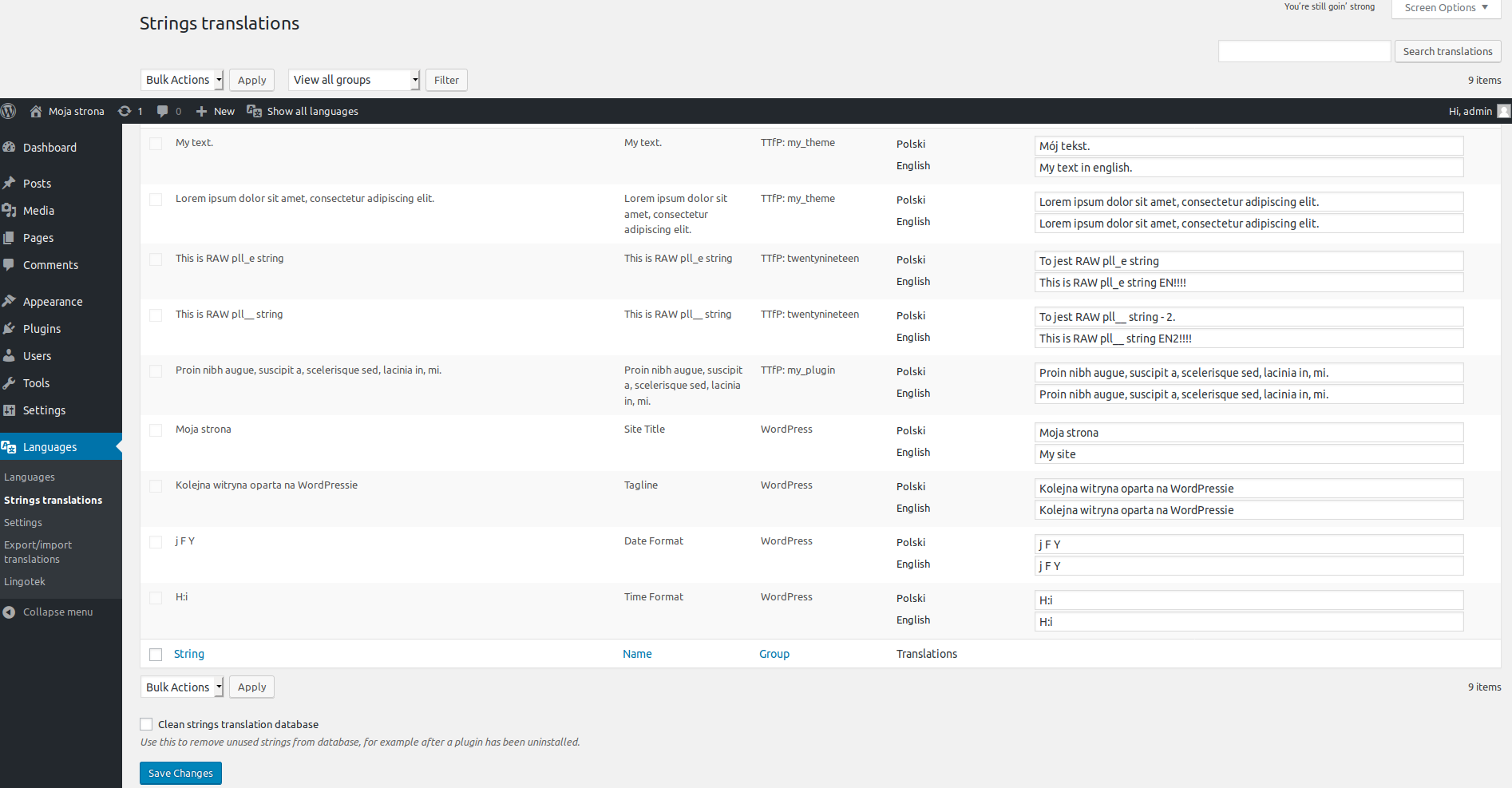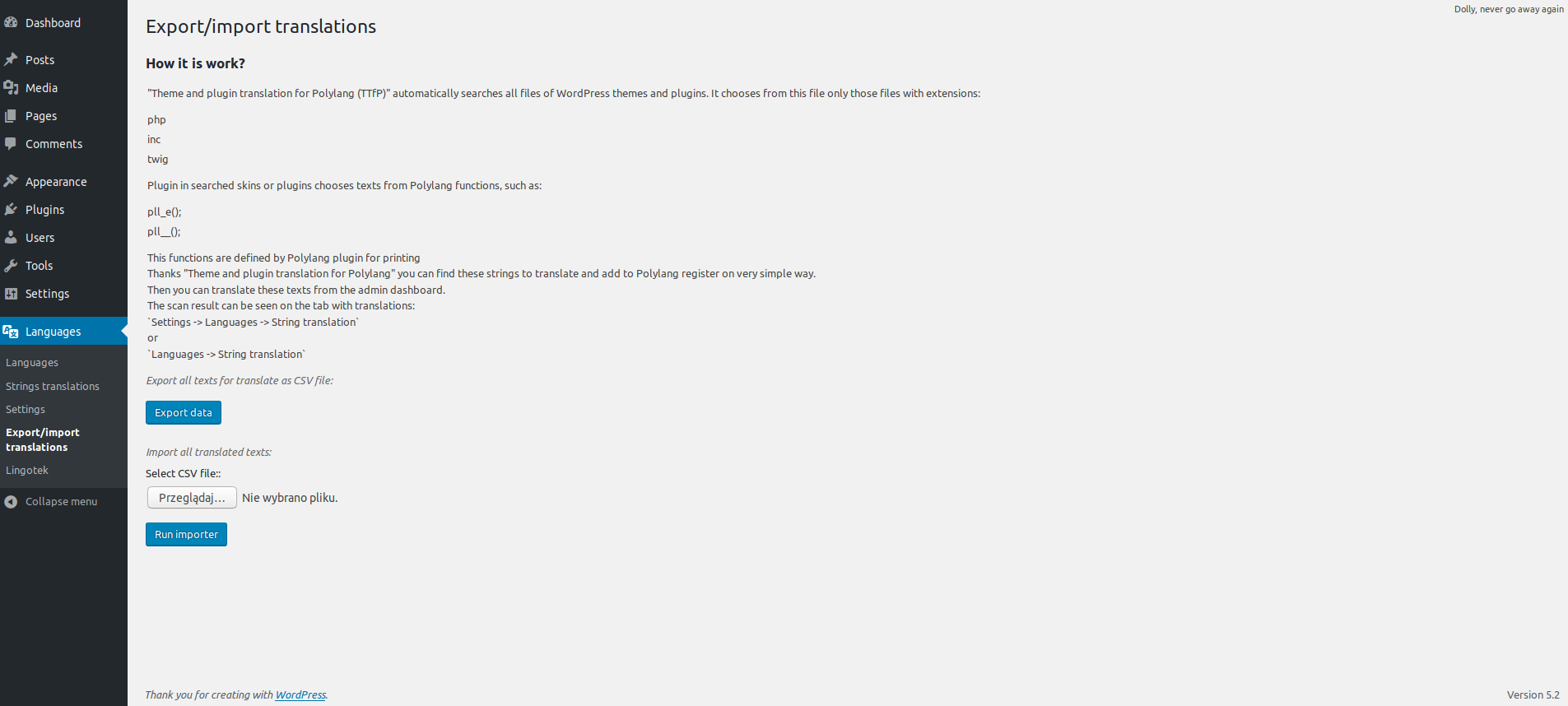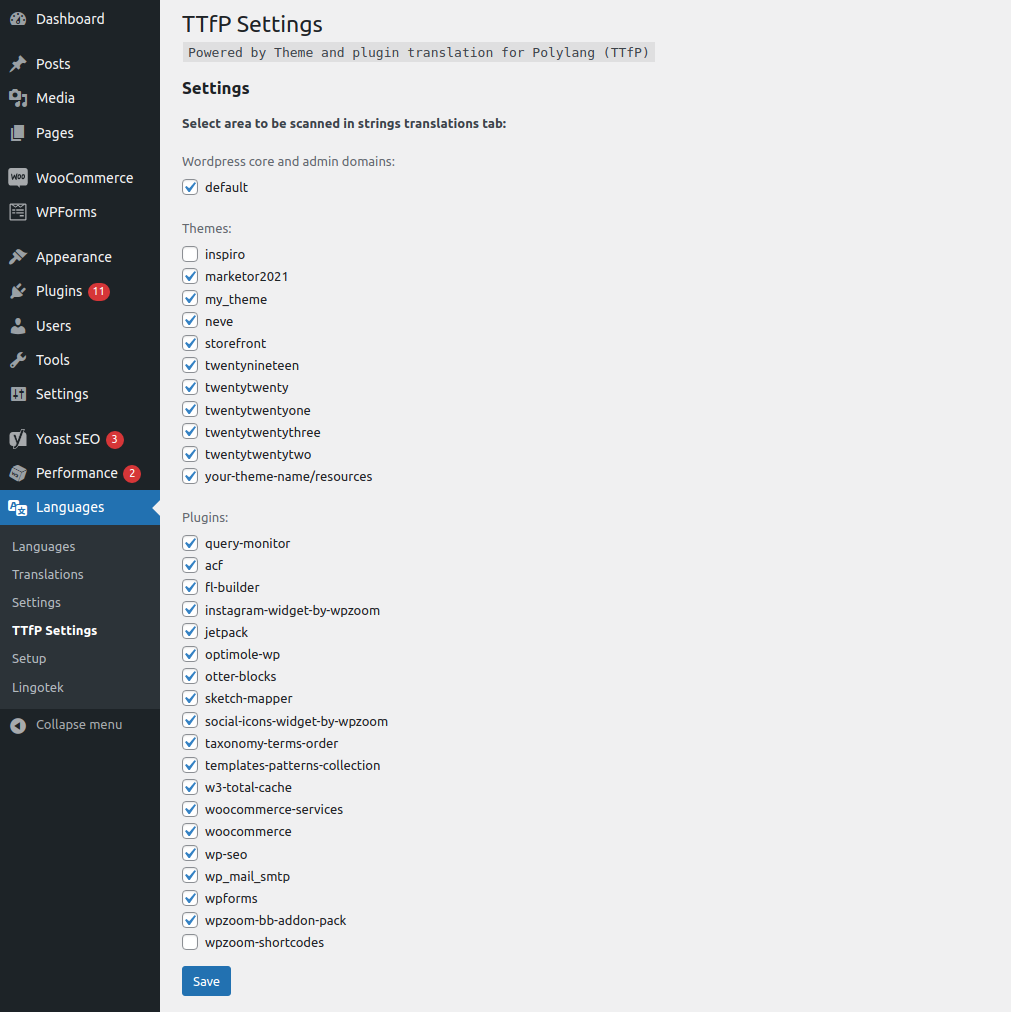Theme and plugin translation for Polylang (TTfP)
Hospedagem WordPress com plugin Theme and plugin translation for Polylang (TTfP)
Onde hospedar o plugin Theme and plugin translation for Polylang (TTfP)?
Este plugin pode ser hospedado em qualquer servidor que possua WordPress instalado. Recomendamos optar por um provedor de hospedagem seguro, com servidores especializados para WordPress, como o serviço de hospedagem WordPress da MCO2.
Hospedando o plugin Theme and plugin translation for Polylang (TTfP) em uma empresa de hospedagem de confiança
A MCO2, além de instalar o WordPress na versão mais nova para seus clientes, disponibiliza o WP SafePress, um sistema singular que salvaguarda e otimiza seu site simultaneamente.
Por que a Hospedagem WordPress funciona melhor na MCO2?
A Hospedagem WordPress funciona melhor pois a MCO2 possui servidores otimizados para WordPress. A instalação de WordPress é diferente de uma instalação trivial, pois habilita imediatamente recursos como otimização de imagens e fotos, proteção da página de login, bloqueio de atividades suspeitas diretamente no firewall, cache avançado e HTTPS ativado por padrão. São recursos que potencializam seu WordPress para a máxima segurança e o máximo desempenho.
What is “Theme and plugin translation for Polylang”?
Extension for Polylang plugin (Polylang is an extension to make multilingual WordPress websites.).
Plugin is needed to translate the WordPress themes and plugins by Polylang.
How to configure it?
Select themes and plugins to find texts for translation by Polylang.
In admin dashboard:
Languages -> TTfP Settings
How it is work?
“Theme and plugin translation for Polylang” automatically searches all files of WordPress themes and plugins. It chooses from this file only those files with extensions:
- php
- inc
- twig
In addition, is implemented the integration with Timber library (read more: http://timber.upstatement.com) – which allows to translate twig’s skins in simple way.
Plugin in searched skins or plugins chooses texts from Polylang functions, such as:
- _e(string $text, string $domain = ‘default’);
- __(string $text, string $domain = ‘default’);
- _x(string $text, string $context, string $domain = ‘default’);
- pll_e(string $text);
- pll__(string $text);
- esc_html(string $text);
- esc_html_e(string $text, string $domain = ‘default’);
- esc_html__(string $text, string $domain = ‘default’);
- _n(string $single, string $plural, int $number, string $domain = ‘default’);
- esc_attr_e(string $text, string $domain = ‘default’);
- esc_attr__(string $text, string $domain = ‘default’);
In your function.php, themes or plugins.
For example:
<p><?php pll_e('My text'); ?></p>
<p><?php _e('My another text', 'my_theme'); ?></p>
On the timber context declare this functions like:
$context['pll_e'] = TimberHelper::function_wrapper('pll_e');
$context['pll_'] = TimberHelper::function_wrapper('pll_');
See more on: https://polylang.wordpress.com/documentation/documentation-for-developers/functions-reference/
These functions are defined by Polylang plugin for printing translations.
Thanks “Theme and plugin translation for Polylang” you can find these strings to translate and add to Polylang register on very simple way.
And then you can translate these texts from the admin dashboard.
The scan result can be seen on the tab with translations:
Settings -> Languages -> String translation
or
Languages -> String translation
You don’t need programs like poedit – you don’t change files with extensions like: .pot, .po, .mo.
“Theme and plugin translation for Polylang” is highly efficient because the scanner is worked only on admin dashboard in tab:
In dashboard:
Settings -> Languages -> String translation
or
Languages -> String translation
Export and import string translation
In dashboard:
Languages -> TTfP Settings
Filter reference
ttfp_domains
Allows plugins and themes (in functions.php) to modify list of text domains (unique identifier for retrieving translated strings).
List of text domains is displayed on “TTfP Settings” page to select them for translation by polylang engine.
Example:
add_filter('ttfp_domains', 'custom_ttfp_domains', 10, 1);
function custom_ttfp_domains(array $domains):array
{
$domains[] = "my-custom-domain";
return $domains;
}
Filter reference
ttfp_translation_access
Returns whether the user has capability to view and edit translations provided by TTfP.
Example:
add_filter('ttfp_translation_access', 'custom_ttfp_translation_access', 10, 1);
function custom_ttfp_translation_access(bool $hasAccess):bool
{
return current_user_can('edit_posts');
}
Capturas de tela

Screen show "Polylang" strings translations with "Theme and plugin translation for Polylang".

Export/import translations as CSV file with "Theme and plugin translation for Polylang".

Settings - Select area to be scanned in Strings translations polylang tab.